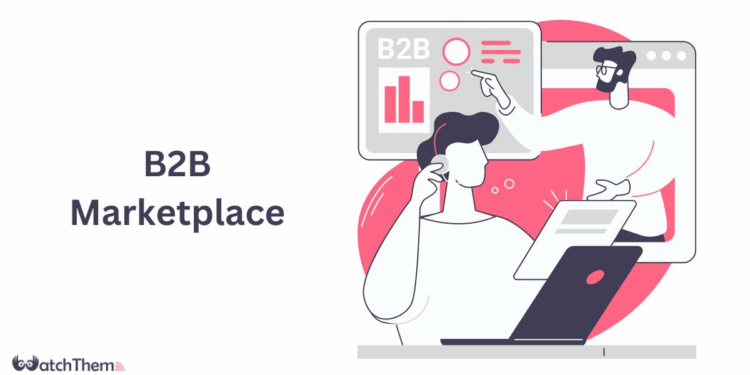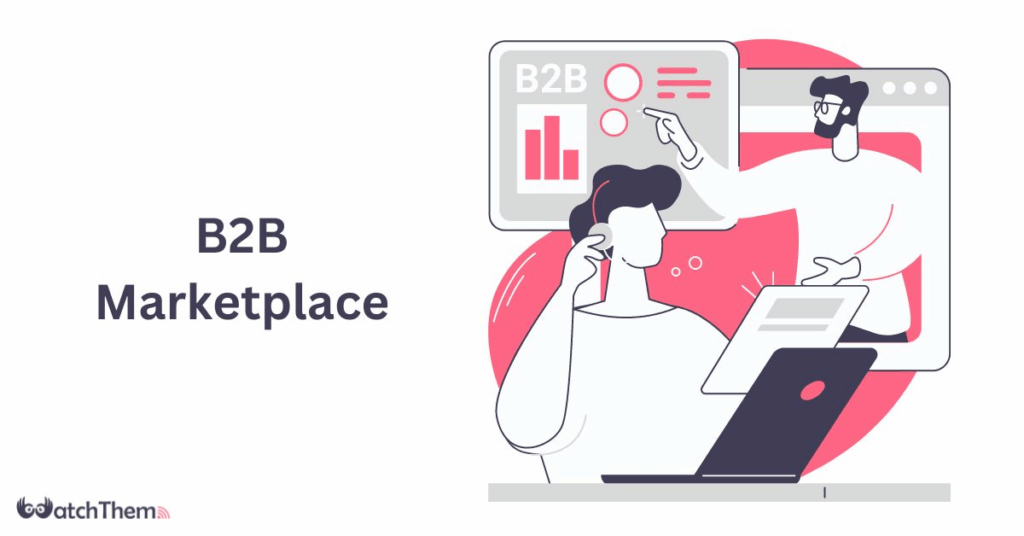
As businesses evolve in the digital age, B2B marketplace platforms have become essential tools for connecting buyers and sellers. This article delves into the intricacies of these platforms, shedding light on their benefits, features, and how they revolutionize traditional B2B methods.
Introduction to B2B Marketplace Platforms
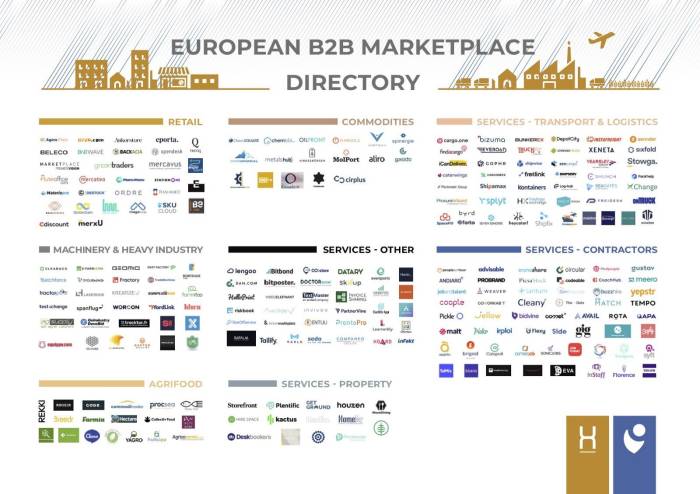
In the fast-paced world of business, B2B marketplace platforms play a crucial role in connecting businesses and facilitating transactions. These platforms serve as online marketplaces where businesses can buy and sell products or services to one another.Traditional B2B methods often involve lengthy negotiations, multiple intermediaries, and slower processes.
In contrast, B2B marketplace platforms streamline the buying and selling process by providing a centralized platform for businesses to connect directly with each other.
Benefits of B2B Marketplace Platforms
1. Increased Efficiency:
B2B marketplace platforms eliminate the need for middlemen, reducing the time and resources required for transactions.
2. Expanded Reach:
Businesses can access a wider network of potential partners and customers through B2B marketplace platforms, allowing for increased opportunities for growth.
3. Cost-Effective:
By cutting out intermediaries and optimizing processes, businesses can reduce costs associated with traditional B2B methods.
4. Transparent Transactions:
B2B marketplace platforms provide visibility into pricing, product information, and terms, ensuring transparency in business transactions.
Key Features of B2B Marketplace Platforms
B2B marketplace platforms are designed to facilitate transactions between businesses by providing a digital space for buying and selling goods and services. These platforms offer a variety of features that streamline the process and enhance efficiency for both buyers and sellers.
1. User-friendly interface
B2B marketplace platforms typically have intuitive interfaces that make it easy for users to navigate and find what they need quickly. This feature ensures a seamless user experience, increasing engagement and conversion rates.
2. Advanced search and filtering options
Effective search and filtering tools allow users to refine their search results based on specific criteria such as price, quantity, location, and more. This feature helps buyers find the right products or services efficiently, saving time and improving the overall shopping experience.
3. Secure payment gateways
Secure payment gateways ensure safe and reliable transactions between buyers and sellers. B2B marketplace platforms integrate trusted payment systems to protect sensitive information and facilitate smooth payment processes.
4. Customizable storefronts
Sellers can create personalized storefronts on B2B marketplace platforms to showcase their products or services effectively. Customization options allow sellers to brand their online presence and attract potential buyers with compelling visuals and information.
5. Analytics and reporting tools
Analytics and reporting tools provide valuable insights into user behavior, sales performance, and market trends. By analyzing data, businesses can make informed decisions, optimize their strategies, and drive growth on B2B marketplace platforms.
How B2B Marketplace Platforms Facilitate Transactions
In the realm of B2B transactions, marketplace platforms play a crucial role in streamlining the process from initiation to completion. These platforms provide a digital space where businesses can connect, negotiate, and ultimately finalize deals in a secure and efficient manner.
Initiating Transactions
When a buyer is in need of a specific product or service, they can easily browse through the listings on the B2B marketplace platform to find potential suppliers. The buyer can then initiate contact by sending inquiries or requests for quotations directly through the platform.
This initial interaction sets the foundation for further negotiation
Negotiating Deals
Once the communication is established between the buyer and seller, negotiations can take place within the platform itself. Both parties can discuss pricing, terms, and other details of the transaction through messaging or video conferencing features provided by the platform.
This streamlined communication process eliminates the need for lengthy email chains or phone calls.
Completing Transactions
After the negotiations are finalized and both parties reach an agreement, the transaction can be completed directly on the B2B marketplace platform. Payment gateways integrated into the platform allow for secure online transactions, ensuring that both parties are protected. Once the payment is made, the platform facilitates the transfer of goods or services, marking the successful completion of the transaction.
Payment gateways and security measures are essential components of B2B marketplace platforms, safeguarding transactions and fostering trust between buyers and sellers.
In the world of B2B transactions, trust and transparency are paramount. B2B marketplace platforms provide a level playing field where businesses can engage in transactions with confidence, knowing that their interests are protected. By offering secure payment options, efficient communication tools, and a transparent environment, these platforms enable seamless transactions that benefit all parties involved.
Types of B2B Marketplace Platforms
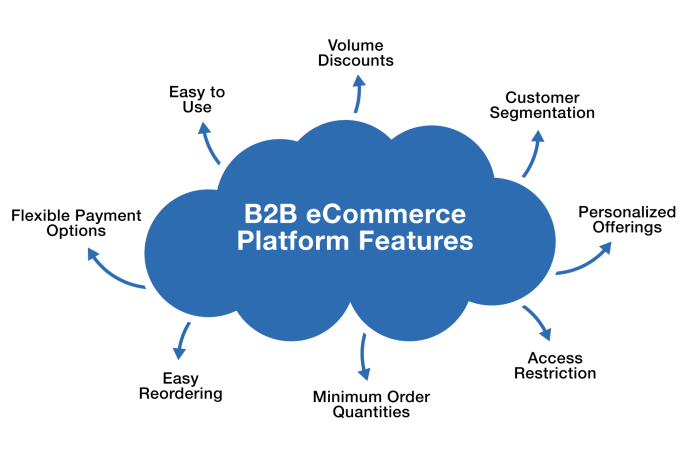
When it comes to B2B marketplace platforms, there are different types that cater to various industries and business needs. Understanding the distinctions between these platforms is crucial for businesses looking to leverage them effectively.
Vertical vs. Horizontal B2B Marketplace Platforms
Vertical B2B marketplace platforms focus on a specific industry or niche, catering to businesses within that particular sector. On the other hand, horizontal B2B marketplace platforms are more general, offering a wide range of products and services across different industries.
- Vertical B2B Marketplace Platforms:
- Example: A platform exclusively for the healthcare industry, connecting medical equipment suppliers with hospitals and clinics.
- Advantages: Provides specialized solutions, targeted networking opportunities, and industry-specific features.
- Horizontal B2B Marketplace Platforms:
- Example: A platform that offers office supplies, IT services, and marketing solutions to businesses across various sectors.
- Advantages: Offers a wide range of products and services, facilitates cross-industry collaborations, and allows for diverse business connections.
Niche-Specific B2B Marketplace Platforms
Niche-specific B2B marketplace platforms target a particular segment within an industry, addressing specific needs and requirements of businesses operating in that niche.
Example: A platform focused solely on connecting organic food producers with retailers and distributors.
Scalability and Flexibility of B2B Marketplace Platforms
The scalability and flexibility of B2B marketplace platforms vary depending on their design and functionality, impacting how businesses can adapt and grow within the platform.
- Scalability:
- Platforms that can accommodate a growing number of users, products, and transactions without compromising performance.
- Example: A B2B marketplace platform that can easily onboard new suppliers and buyers as the business expands.
- Flexibility:
- Platforms that offer customization options, integrations with other systems, and adaptability to changing business needs.
- Example: A B2B marketplace platform that allows businesses to create personalized storefronts and tailor their user experience.
Last Word
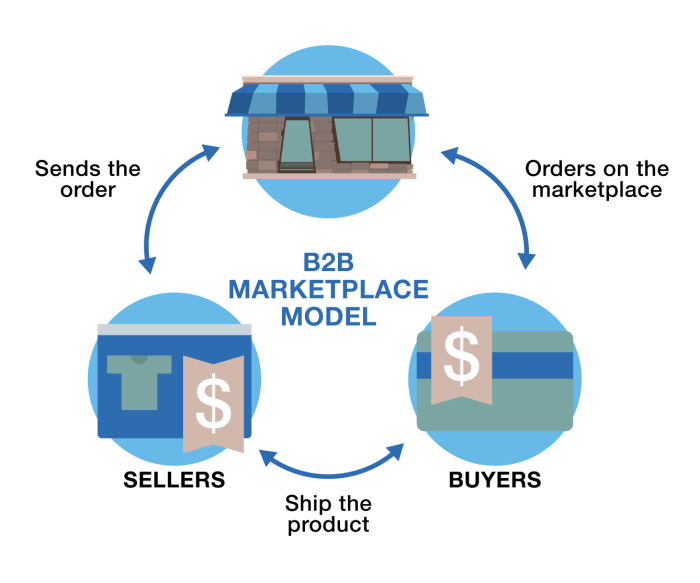
In conclusion, B2B marketplace platforms offer a dynamic and efficient way for businesses to conduct transactions and foster partnerships. By embracing these platforms, companies can unlock new opportunities and streamline their operations in the competitive business landscape.
Key Questions Answered
How do B2B marketplace platforms benefit businesses?
B2B marketplace platforms provide a centralized hub for businesses to connect, collaborate, and conduct transactions efficiently, leading to increased productivity and expanded market reach.
What are some essential features of B2B marketplace platforms?
Key features include robust search and filter options, secure payment gateways, real-time messaging systems, and analytics tools to track performance and trends.
How do vertical and horizontal B2B marketplace platforms differ?
Vertical platforms cater to specific industries or niches, offering targeted solutions, while horizontal platforms serve a wide range of industries with more generalized offerings.
